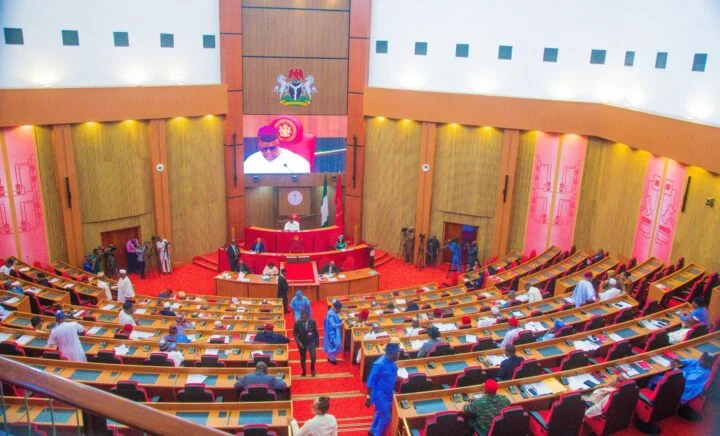There were strong signs on Monday that the Nigerian Senate is about to convene a public hearing on the Tax Reform Bills to offer them for a third reading and perhaps passage.
This development was confirmed after a Senate Ad-hoc committee meeting behind closed doors with important government officials, such as Lateef Fagbemi (SAN), the Attorney General of the Federation; Zacch Adedeji, the chairman of the Federal Inland Revenue Service (FIRS); Taiwo Oyedele, the chairman of the Presidential Fiscal Policy and Tax Reforms Committee; and Dr. Mohammed Bello Shehu, the chairman of the Revenue Mobilisation Allocation and Fiscal Commission (RMAFC).
The Senate’s Ad-hoc Committee on Tax Reform, chaired by Senator Abba Moro, was formed in December of last year to discuss controversial parts of the proposed tax law with the Nigerian government.
There has been a lot of development, Senator Moro disclosed.
We have had extensive talks with government representatives and have come to certain accords. To create a law that serves the interests of every Nigerian, we aim to integrate the entire process,” Moro said.
“I am hopeful that the committee will soon complete its work and present the bills for passage,” he said.
“We’ll have a better story to tell when we get together again,” he remarked.

Also expressing confidence in the progress made, FIRS Chairman Zacch Adedeji said that formerly controversial topics have been settled.
“The so-called grey areas were clarified and discussed.” No further meetings will be necessary because we are now headed correctly.”
Adedeji declared, “Every problem has been recognised, explained, and fixed. All parties involved agreed.” He confirmed that the proposed tax laws were necessary.
“Nigeria needed these laws; everyone agreed. The basis of the law came together today, with the Attorney General, legislators, and operators all in agreement,” he said.
The committee’s work represents a major step in the process of reforming Nigeria’s tax structure to improve revenue collection and establish a more effective tax structure.


